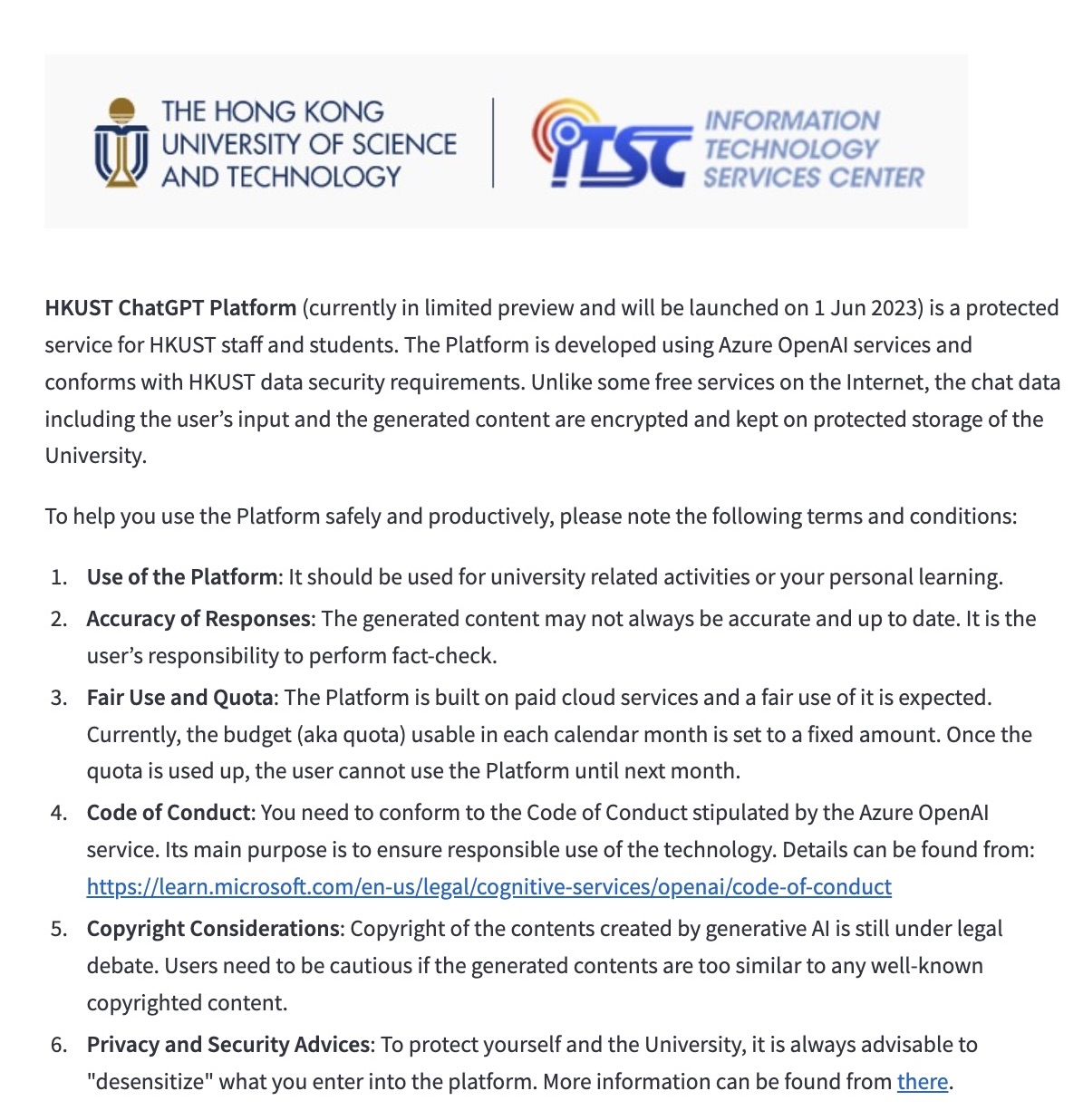The Hong Kong University of Science and Technology (HKUST) has come up with its own version of ChatGPT for its students, faculty, and staff members to use. The AI chatbot, which is currently in limited preview, will be launched on June 1 as a protected service for all university members.
The platform developed using Azure OpenAI services is based on ChatGPT 3.5 and is a paid cloud service. All users will be assigned a monthly quota and there will be a cap on the number of prompts per chat session.
The university recommends that the chatbot be used for “university-related activities or your personal learning” and advises users to fact-check as “the generated content may not always be accurate and up to date.”

HKUST encourages students and faculty to use generative AI tools in teaching and learning, and currently allows university members to use ChatGPT via Poe, a service that lets users to ask questions and obtain answers from several AI bots built on top large language models. This is because the creators of ChatGPT, OpenAI, have not made their services available in Hong Kong, and people in the SAR who do use the chatbot access it with a VPN.
There has been much debate about the use of generative AI tools such as ChatGPT in Hong Kong academic circles. The University of Hong Kong banned students from using it, but allows staff to access it for “only for work and research-related purposes” on a trial basis until June 30 this year.
The Chinese University of Hong Kong prohibits students from “using any AI tools to complete their assignments, assessments and any other works that count towards their final grade of the course or attainment of the desired learning outcomes, unless explicitly permitted.”
On the other hand, the Education University of Hong Kong permits to use AI-enabled tools in their work as long as they declare such use and “articulate their reflections” on the process.
Header image credits: Valerii Honcharuk via Canva




